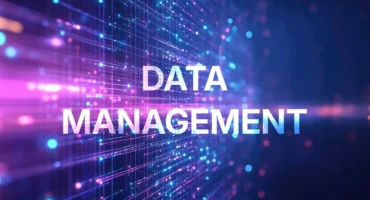
Seth Rao
CEO at FirstEigen
How to Deploy Data Quality Tools & Data Trust Monitors Across Pipelines to Reduce Dark Data?
As businesses collect ever-increasing volumes of data, the risk of accumulating “dark data”—data that remains unused or untrustworthy—continues to grow. The solution lies in implementing advanced data quality tools and data trust monitors across data pipelines to ensure the accuracy, reliability, and trustability of your data.
Seth Rao, CEO of FirstEigen, speaks about building a data trustability platform, ensuring data trustworthiness, the importance of a data trust score, how everyone in a business is a stakeholder, the need for accountability, and a glimpse of change.
The Growing Importance of Data Trustability
There is growing importance of data trustability as the volume of data being collected increases, which can result in errors and diminished trust in the data’s accuracy and reliability. FirstEigen, address this issue by creating a next gen data quality platform, leveraging AI and ML technologies to measure data trustability of every data set anywhere in the pipeline. They have been featured by major firms like Gartner, IDC, Eckerson, and Gigaom and served diverse industries, including finance, high tech, manufacturing, healthcare, and retail.
The Problem: Distrust in Data Across Pipelines
The core problem Rao identifies is the widespread distrust in data, spanning from individual data points to entire pipelines. Such distrust can lead to poor decisions in various sectors, including supply chain management and financial investment. He introduces the concept of a “data trust score,” which can be measured at every stage of the data pipeline to determine the trustworthiness of data.
However, calculating this score with traditional data quality tools like Informatica Data Quality (IDQ or Informatica DQ) is challenging. Rao points out that establishing data trust metrics for a single table can take up to eight weeks. For a medium-sized company with 1,000 tables, it would be a daunting 80 person-year task. Hence, there’s an urgent need to automate this process.
The Challenge of Measuring Data Trust With Traditional Tools
The data trust score is a relative measure depending on what the data is being used for. For instance, while a burger company’s supply chain data might have an 80% trust score without causing significant issues, its accounts payable department may demand a 99.99% certainty when handling payments. Businesses can adjust their data trust scores fit for a specific use. Rao makes an analogy between monitoring a nuclear power plant’s parameters every second to prevent catastrophes and businesses needing to continuously monitor their data trust scores to maintain operational efficiency and avoid data-related issues.
Everyone in an organization, from finance to sales, is a stakeholder in ensuring data accuracy, and all should be wary of the consequences of incorrect data. An evolving trend is the business teams now ask the IT team if the data has been validated by FirstEigen’s tool, DataBuck. This change signifies a cultural shift towards recognizing the collective responsibility for data quality throughout an organization.
DataBuck Ensures Clean Data for Effective Data Integration
Whichever data integration tool you choose, you can improve its effectiveness by ensuring a stream of reliably high-quality data. This is best achieved by monitoring all ingested and internally created data with DataBuck from FirstEigen. DataBuck is an autonomous data trustability monitoring solution that employs artificial intelligence and machine learning to monitor and clean integrated data in real-time. The result? You get the consistent data quality your organization needs for effective data integration.
Contact FirstEigen today to learn more about data integration quality.
Full article available here…
FAQs
Dark data refers to information collected but not used by organizations. It can lead to inefficiencies, increased storage costs, and potential compliance risks, while also hiding valuable insights.
Data trust monitors like DataBuck use AI and machine learning to automatically validate, monitor, and clean data, reducing errors and ensuring high-quality, reliable data across the entire pipeline.
A data trust score is a metric that indicates the level of trustworthiness of data at different stages of the data pipeline. It helps organizations gauge how reliable their data is for decision-making.
Automating data quality is critical due to the large volume of data and the complexity of pipelines. Manual methods are slow and error-prone, while automated solutions like DataBuck ensure continuous, real-time validation and quality control.
DataBuck enhances data integration by continuously monitoring ingested and internally generated data. It ensures that only clean, trustworthy data enters the system, improving the effectiveness and reliability of data integration efforts.
Discover How Fortune 500 Companies Use DataBuck to Cut Data Validation Costs by 50%
Recent Posts
Get Started!



